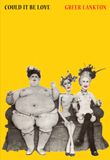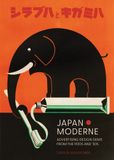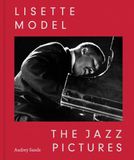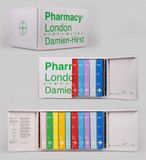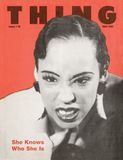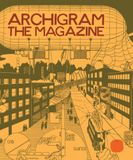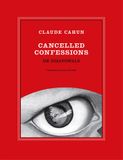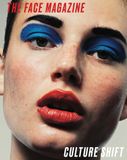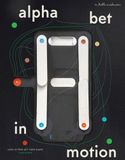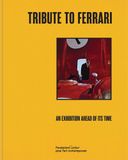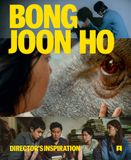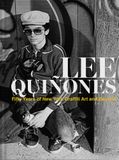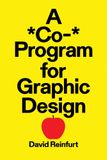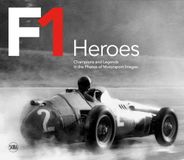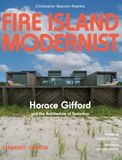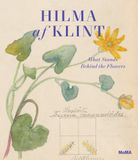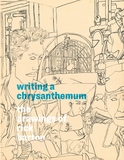| |||||||||||||||||||||||||
ARTBOOK BLOGEventsStore NewsMuseum Stores of the MonthNew Title ReleasesStaff PicksImage GalleryBooks in the MediaExcerpts & EssaysArtbook InterviewsEx LibrisAt First Sight2025 Gift GuidesFeatured Image ArchiveEvents ArchiveDATE 2/25/2026 Villa Albertine presents Rémi Babinet launching 'No Ads Please'DATE 2/19/2026 Rare Hindu prints by Bengali artists during colonial ruleDATE 2/16/2026 Humble beauty in 'Chinese Patchwork'DATE 2/14/2026 Love, magic and alchemy in Hayao Miyazaki's 'Ponyo'DATE 2/11/2026 Architectural Association presents the UK launch of 'Archigram: The Magazine'DATE 2/9/2026 Lake Verea inhabits Casa Barragán—with wonderDATE 2/5/2026 The romance of hand-painted signage, courtesy of 19th- and 20th-century FranceDATE 2/1/2026 Black History Month Reading, 2026DATE 2/1/2026 Join Artbook | D.A.P. at Shoppe Object New York, February 2026DATE 1/31/2026 CULTUREEDIT presents 'Daniel Case: Outside Sex'DATE 1/29/2026 In our current emergency, 'Someday is Now'DATE 1/28/2026 Dyani White Hawk offers much needed 'Love Language' in MinneapolisDATE 1/28/2026 Center for Co-Architecture Kyoto presents 'Archigram: Making a Facsimile – How to make an Archigram magazine' | STAFF PICKS | FROM THE SHELVES
| ||||||||||||||||||||||||
STATUS: Out of stock indefinitely. |
 Matthew Brandt: Lakes and Reservoirs
Matthew Brandt: Lakes and Reservoirs
Published by Damiani/Yossi Milo.
Matthew Brandt creates his work using physical elements from the depicted subject. Inspired by landscape photography of the American West and alternative photograph processes developed during photography's infancy in the mid-nineteenth century, the artist revives traditional photographic techniques through various production processes. Whether soaking prints in water from the depicted lake, printing on paper made from the subject tree or even using a pigment created from the subject, Brandt blurs the line between the photograph and the photographed. For his series Lakes and Reservoirs, Brandt photographs lakes and reservoirs in the western United States, and then submerges each resulting C-Print in water collected from the subject of the photograph. Prints are soaked for days or weeks or even months, and this process impacts the layers of color that comprise the image. Brandt removes the print once it reaches its desired look, which can range from mostly representational to completely abstract. The Lakes and Reservoirs series considers the current condition not only of our lakes and reservoirs, but also of traditional color photography.
In December 2011, Forbes named Matthew Brandt (born 1982) one of tomorrow's "brightest stars," in the article "30 Under 30: Art & Design." Brandt's work is included in the collections of The Metropolitan Museum of Art, New York; J. Paul Getty Museum, Los Angeles; National Gallery of Art, Washington, D.C.; Brooklyn Museum, New York; Cincinnati Art Museum; Los Angeles County Museum of Art; Hammer Museum, Los Angeles; Royal Danish Library, National Museum of Photography, Copenhagen; and the Columbus Museum of Art, among others. Brandt was born in California and received his BFA from Cooper Union and his MFA from UCLA. The artist currently lives and works in Los Angeles.
PUBLISHER
Damiani/Yossi Milo
BOOK FORMAT
Hardcover, 13.75 x 11 in. / 176 pgs / illustrated throughout.
PUBLISHING STATUS
Pub Date 10/31/2014
Out of print
DISTRIBUTION
D.A.P. Exclusive
Catalog: FALL 2014 p. 40
PRODUCT DETAILS
ISBN 9788862083744 TRADE
List Price: $65.00 CAD $87.00
AVAILABILITY
Not available
STATUS: Out of print | 00/00/00 For assistance locating a copy, please see our list of recommended out of print specialists |
 Gusmano Cesaretti: Fragments of Los Angeles 1969-1989
Gusmano Cesaretti: Fragments of Los Angeles 1969-1989
Published by Damiani/Alleged Press.
Edited by Aaron Rose. Text by Jeffrey Deitch, Michael Mann.
Self-taught Italian photographer Gusmano Cesaretti (born 1944) was one of the very first photographers to document the street culture of East Los Angeles, and The Thrill Is Gone is a retrospective history of his celebrated photographic work of the 1970s. Chapters include “Bikers,” “East L.A. Diary,” “Folsom Prison,” “Maria Sabina,” “Muscle Beach” and “Street Writers,” along with selected other iconic images from this important time in the photographer’s creative history. As a boy growing up in Italy, Cesaretti listened to jazz and rock ’n’ roll on the radio, and was drawn to the worlds of Marlon Brando and James Dean in Hollywood movies. But when he arrived in the U.S.--Cesaretti has lived in Los Angeles since 1970--it was the raw energy, graffiti, culture and people of East L.A. that seduced him. His early work--featured here in the chapter “East L.A. Diary”--documents his immersion in the low-rider subculture of the Klique car club. Cesaretti credits his poor English with allowing him to earn the trust of local residents--he found it hard to understand their graffiti on his own and had to ask for help. Independent curator Aaron Rose describes him as “one of the few true artists documenting outlaw cultures in the tradition of Robert Frank.”
PUBLISHER
Damiani/Alleged Press
BOOK FORMAT
Hardcover, 9.5 x 12.5 in. / 160 pgs / illustrated throughout.
PUBLISHING STATUS
Pub Date 4/30/2013
Out of print
DISTRIBUTION
D.A.P. Exclusive
Catalog: SPRING 2013 p. 90
PRODUCT DETAILS
ISBN 9788862082754 TRADE
List Price: $50.00 CAD $67.50
AVAILABILITY
Not available
STATUS: Out of print | 00/00/00 For assistance locating a copy, please see our list of recommended out of print specialists |
 Katy Grannan: The Ninety Nine and The Nine
Katy Grannan: The Ninety Nine and The Nine
Published by Fraenkel Gallery.
The result of three years of work in California's Central Valley, Katy Grannan's new series The 99 features large-scale color portraits and black-and-white photographs. Grannan's recent photographs are set in the parched landscape and forgotten towns along Highway 99, including Modesto, Fresno and Bakersfield. In her intensely vivid color portraits, the artist works at midday when the sun is direct and the heat is unrelenting, presenting each individual, often simultaneously heroic and vulnerable, against stark, white backgrounds. In the black-and-white photographs, many of her subjects re-appear on Modesto's South 9th Street and along the banks of the Tuolumne River. Everyday rituals, small interactions and moments of beauty on the fringes of society are depicted in detail, conferring significance to what is often overlooked. This large-format, two-volume, slipcased monograph gathers this series for the first time.
Katy Grannan (born 1969) has published three previous monographs: Model American, The Westerns and Boulevard. Her photographs are included in the collections of the Whitney Museum of American Art, The Metropolitan Museum of Art, The Museum of Modern Art, New York, the Guggenheim Museum, New York, the San Francisco Museum of Modern Art and the Los Angeles County Museum of Art, among others. Grannan lives and works in Berkeley, CA.
PUBLISHER
Fraenkel Gallery
BOOK FORMAT
Slip, Paperback, 2 vols, 12 x 15 in. / 160 pgs / 44 color / 26 bw.
PUBLISHING STATUS
Pub Date 4/30/2014
Out of stock indefinitely
DISTRIBUTION
D.A.P. Exclusive
Catalog: FALL 2014 p. 52
PRODUCT DETAILS
ISBN 9781881337386 TRADE
List Price: $65.00 CAD $87.00 GBP £57.00
AVAILABILITY
Not available
STATUS: Out of stock indefinitely. |
 Dennis Hopper: Drugstore Camera
Dennis Hopper: Drugstore Camera
Published by Damiani.
Edited by Michael Schmelling. Introduction by Marin Hopper.
Drugstore Camera feels like a stumbled-upon treasure, a disposable camera you forgot about and only just remembered to develop. Yet in this case the photographer is Dennis Hopper and the photographs, remarkably, are never before published. Shot in Taos, New Mexico, where Hopper was based following the production of Easy Rider in the late 60s, the series was taken with disposable cameras and developed in drugstore photo labs. This clothbound collection documents Hopper's friends and family among the ruins and open vistas of the desert landscape, female nudes in shadowy interiors, road trips to and from his home state of Kansas and impromptu still lifes of discarded objects. These images, capturing iconic individuals and wide-open Western terrain, create a captivating view of the 60s and 70s that combines political idealism and optimism with California cool.
Dennis Hopper (1936–2010) was born in Dodge City, Kansas. He first appeared on television in 1954 and quickly became a cult actor, known for films such as Rebel Without a Cause (1955), Easy Rider (1969), The American Friend (1977), Apocalypse Now (1979), Blue Velvet (1986) and Hoosiers (1986). In 1988 he directed the critically acclaimed Colors. Hopper was also a prolific photographer and published now-classic portraits of celebrities such as Andy Warhol and Martin Luther King Jr. His works are housed in The Metropolitan Museum of Art, New York; The Museum of Modern Art, New York and Los Angeles County Museum of Art, among others.
PUBLISHER
Damiani
BOOK FORMAT
Clth, 9.25 x 8 in. / 96 pgs / illustrated throughout.
PUBLISHING STATUS
Pub Date 5/26/2015
Out of print
DISTRIBUTION
D.A.P. Exclusive
Catalog: SPRING 2015 p. 49
PRODUCT DETAILS
ISBN 9788862084031 TRADE
List Price: $45.00 CAD $60.00
AVAILABILITY
Not available
STATUS: Out of print | 00/00/00 For assistance locating a copy, please see our list of recommended out of print specialists |
 Mitch Epstein: State of the Union
Mitch Epstein: State of the Union
Published by Hatje Cantz.
Text by Christoph Schreier, Giesela Parak, Stephan Berg.
Mitch Epstein (born 1952) is among America's finest contemporary photographers. Two of the most powerful series upon which his reputation rests are Recreation (1973-1988) and American Power (2003), sequences that attempt to make fundamental statements about the U.S. by scrutinizing how its citizens spend their leisure and how its energy industry operates. This publication examines the development of Epstein's work through the example of these two very different series. Recreation exemplifies traditional American street photography in its sometimes ironized depiction of everyday circumstances, where American Power critiques the energy industry and its interventions in nature in much bolder gestures--cooling towers and oil refineries dominate the picture frame, riding roughshod over all rules of proportion and dwarfing anything in their vicinity. Here, in 80 color images selected from these series, Epstein's development is traced, from major protagonist of the American color photography boom to leading commentator on the state of the nation.
PUBLISHER
Hatje Cantz
BOOK FORMAT
Hardcover, 9.75 x 14.5 in. / 120 pgs / 59 color.
PUBLISHING STATUS
Pub Date 4/30/2011
Out of print
DISTRIBUTION
D.A.P. Exclusive
Catalog: SPRING 2011 p. 93
PRODUCT DETAILS
ISBN 9783775727846 TRADE
List Price: $60.00 CAD $70.00
AVAILABILITY
Not available
STATUS: Out of print | 00/00/00 For assistance locating a copy, please see our list of recommended out of print specialists |
|
the source for books on art & culture
CUSTOMER SERVICE
orders@artbook.com
212 627 1999 ext 202
M-F 10-6 EST
Ingram Customer Care
800-937-8200 option 3
orders@dapinc.com
NEW YORK
Showroom by Appointment Only
75 Broad Street, Suite 630
New York NY 10004
Tel 212 627 1999
LOS ANGELES
Showroom by Appointment Only
818 S. Broadway, Suite 700
Los Angeles, CA 90014
Tel. 323 969 8985
ARTBOOK LLC
D.A.P. | Distributed Art Publishers, Inc.
All site content Copyright C 2000-2025 by Distributed Art Publishers, Inc. and the respective publishers, authors, artists. For reproduction permissions, contact the copyright holders.
The D.A.P. Catalog
www.artbook.com











